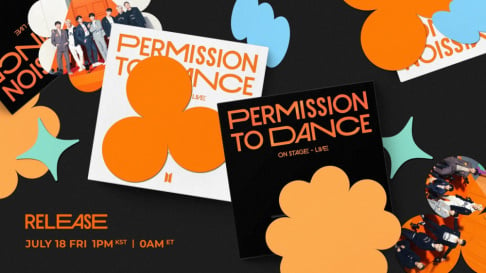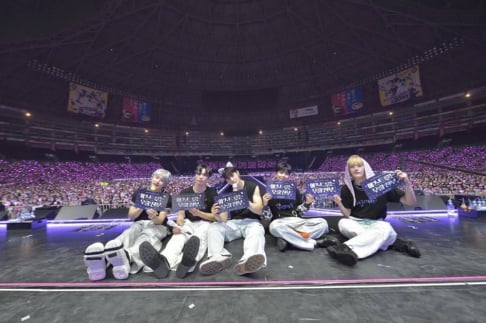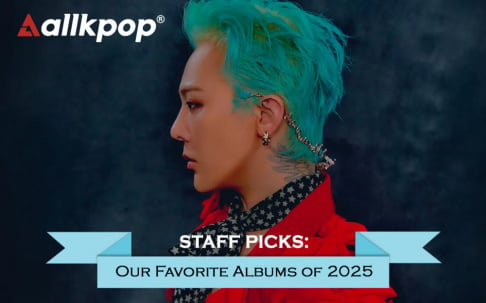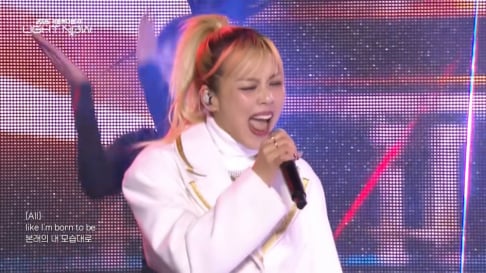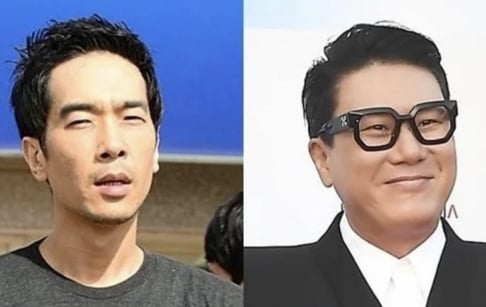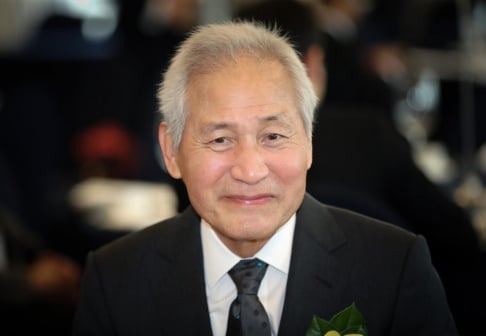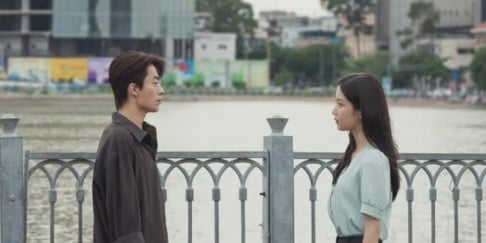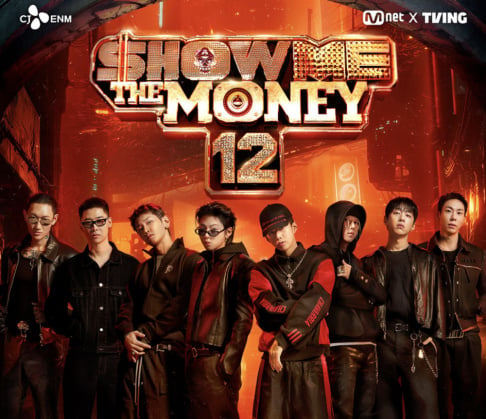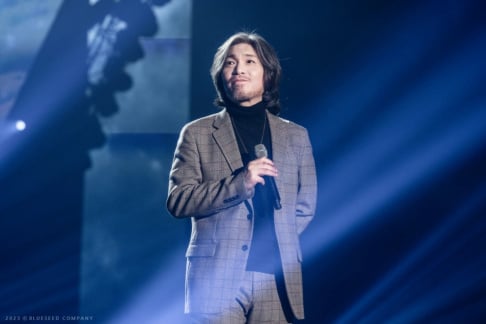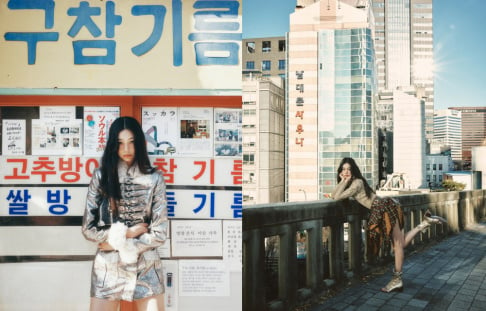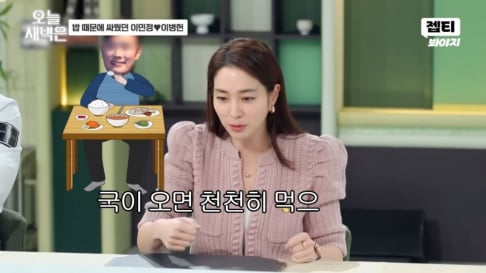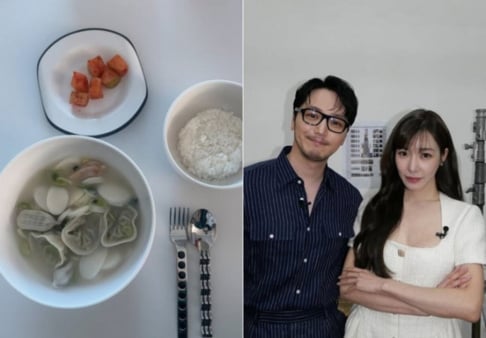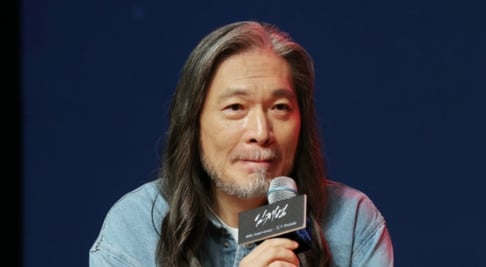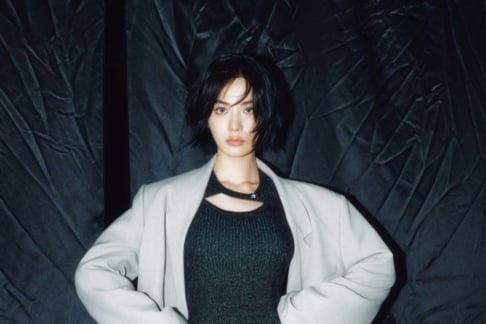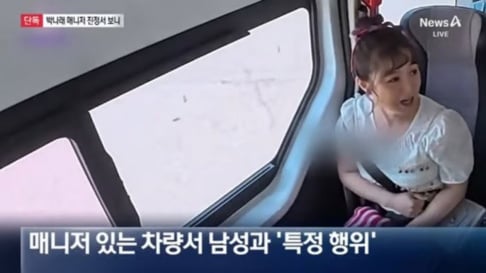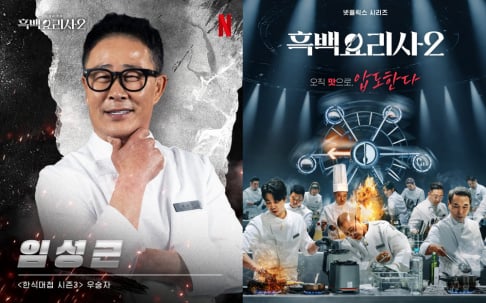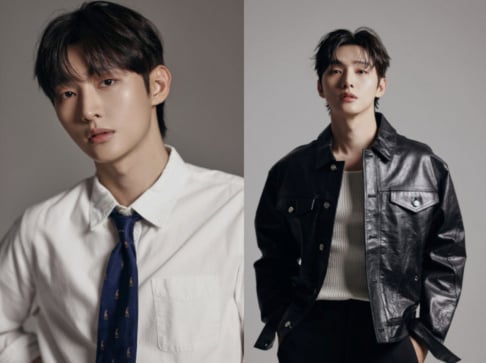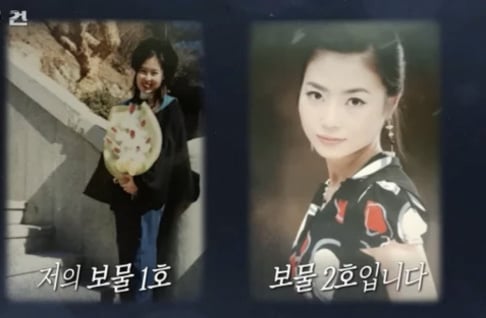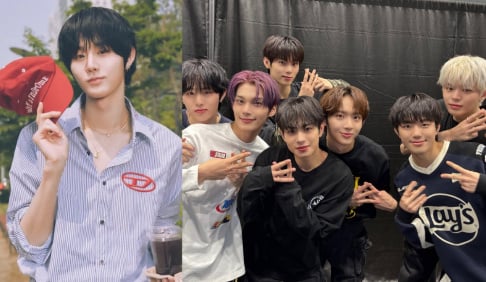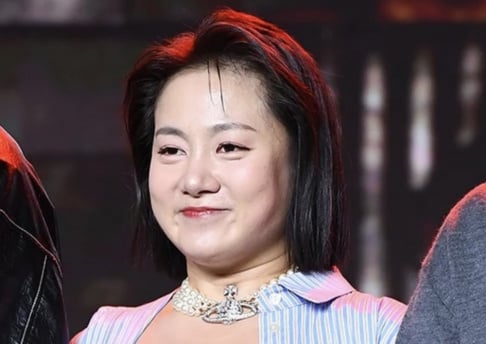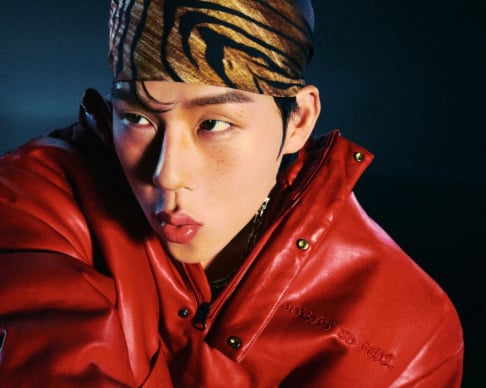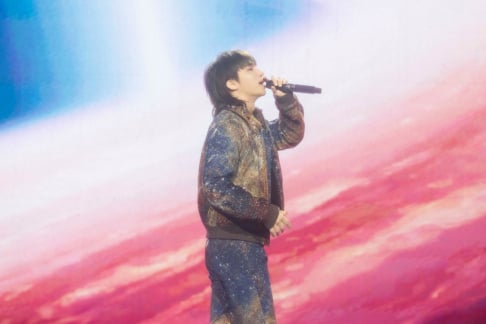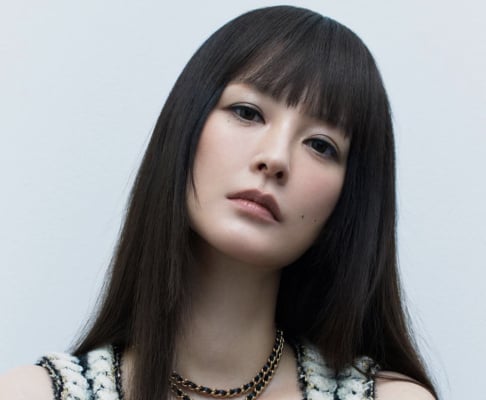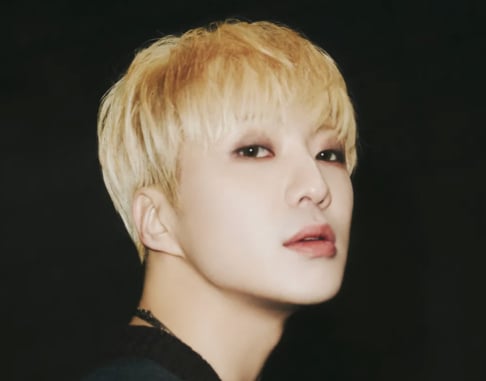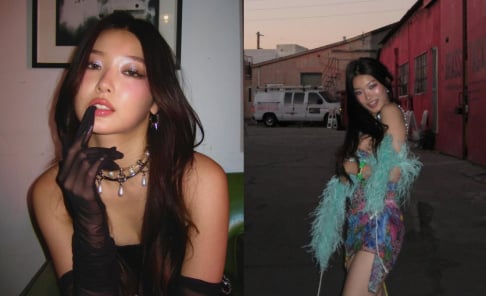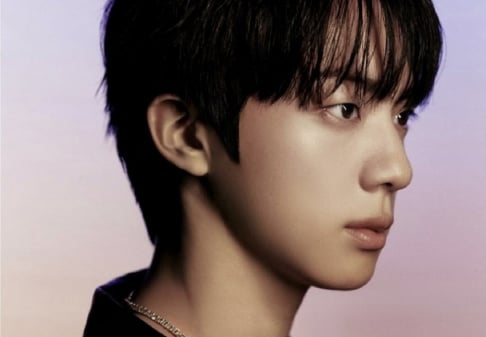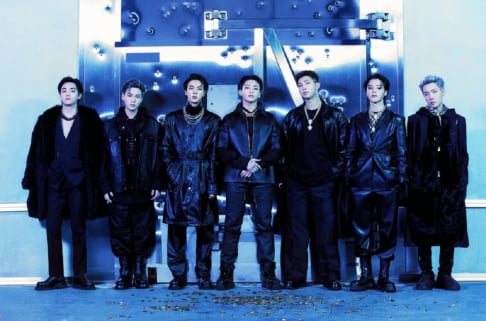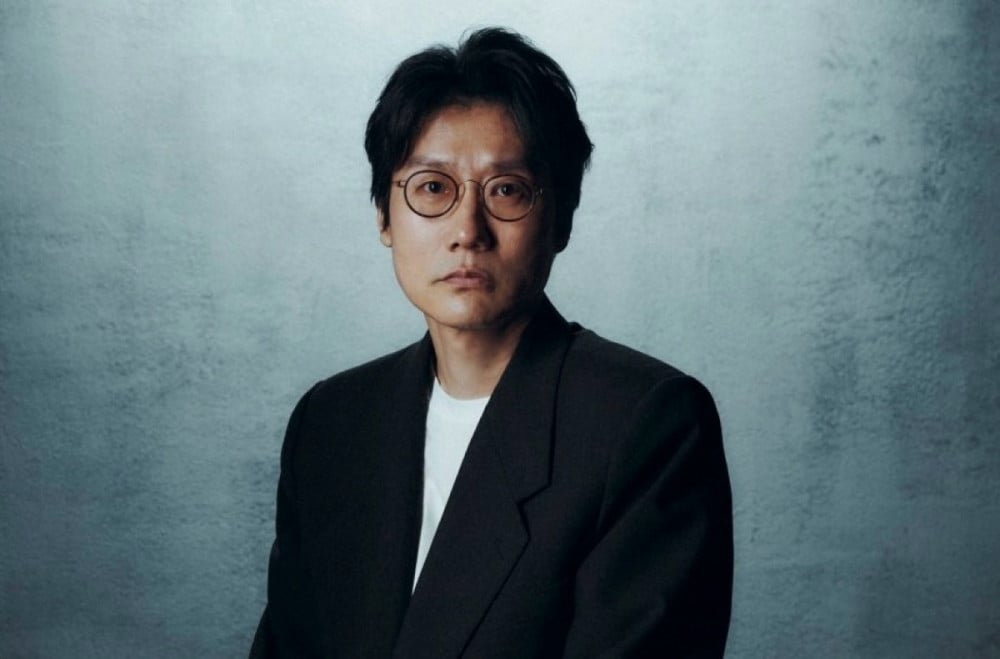
This interview contains spoilers.
Director Hwang Dong Hyuk shared his thoughts on completing the six-year journey of 'Squid Game'.
On June 30th KST, during an interview held at a café in Jongno, Seoul, for the Netflix Original 'Squid Game 3', Hwang was asked how he felt about wrapping up the final season. He began by saying, “I feel relieved.” He then added that after dedicating the past six years exclusively to the Squid Game series, he now just wants to rest, effectively announcing a hiatus.
The Squid Game series tells the story of people who put their lives on the line in deadly games to win 45.6 billion won in prize money. Upon its release in 2021, Season 1 shattered all of Netflix’s previous records and became a worldwide phenomenon. It not only achieved massive popularity but was also recognized for its artistic value, sweeping awards at various ceremonies including the Emmy Awards, one of the four major accolades in the U.S. entertainment industry.
After Season 1 premiered, Hwang had famously stated that “six of his teeth fell out while writing the script” and declared that there would be no sequel. However, the explosive popularity of the show led to the simultaneous production of Seasons 2 and 3. After about a year of filming, Season 2 was released in December of last year, and Season 3 premiered on June 27th.
According to streaming ranking site FlixPatrol, Squid Game 3 ranked number one in 93 countries including the U.S., UK, Canada, France, Switzerland, Belgium, Australia, Japan, the Philippines, Taiwan, and Thailand—demonstrating overwhelming global popularity. However, opinions about the content were divided. Hwang acknowledged this by saying, “I understand all of the feedback,” and candidly spoke about the difficulty of surpassing the bar set by Season 1.
Q: The six-year journey has ended.
A: I feel relieved. From the moment I started writing until now, it took about six full years. When Season 1 came out, there weren’t any expectations, and it became a huge success. For Seasons 2 and 3, the expectations were massive, and that came with a lot of pressure. Now that it’s all finished, I feel like I’ve laid down a heavy burden. At the same time, I wonder if I’ll ever make something again that carries this much anticipation. So I’m feeling grateful, but also a bit empty.
Q: What did you think of the reactions?
A: The overseas promotional schedule was intense. I hardly slept for a month because of all the time zone changes. I wasn’t feeling well, so I wasn’t able to keep up with all the reactions. But I’ve heard that some people liked it while others had complaints. I understand all of it. Season 1 had the advantage of low expectations, so it felt shocking and fresh. It satisfied viewers with interesting games and social commentary. But for Seasons 2 and 3, viewers came in wanting different things—some wanted even more entertaining games, others looked for social messages, and some hoped their favorite characters would thrive. That’s probably why the opinions have become so polarized.
Q: Was Gi-hun’s death always part of the plan?
A: At first, I imagined a happy ending—Gi-hun survives, ends the whole thing, and goes to America to reunite with his daughter. But once I started writing, my thoughts changed. I considered what story I wanted to tell and looked at what was happening in the world. Since COVID, economic anxiety and inequality have gotten worse. Threats of war are intensifying, and nationalism is on the rise. Looking at this world that we can’t seem to stop from heading in the wrong direction, I began to ask myself what kind of world we’re leaving for the next generation. Many young people say they’re losing their dreams and hope, and I felt that the older generation should stop their greed and try to leave something better behind. That’s why I introduced a child character—to symbolize the future and hope. I wanted Gi-hun to sacrifice himself for that child. That was the message I wanted to deliver.
Q: Some criticized that the child was used merely as a symbol. Also, the scene where Geum-ja (played by Kang Ae-shim) sacrifices herself for her baby’s sake confused some viewers.
A: I only intended the child to be symbolic—something to be protected rather than realistically raised. From Geum-ja’s perspective, she was trying to stop her son from committing a horrible act of violence. Stabbing him in the shoulder was an instinctive action to stop him, not to kill. I hope people understand it that way.
Q: Isn’t Gi-hun himself a symbol of Squid Game?
A: Gi-hun is inseparable from this story. In Season 1, he came off as foolish, a loser, and pathetic, but he found his conscience and began to change. Lee Jung Jae portrayed that so well. We filmed Seasons 2 and 3 over a year, and he stayed on a diet the entire time. He only ate boiled vegetables—I found that truly admirable. During Season 1, he could still drink and eat out, but during Seasons 2 and 3, we couldn’t even have a meal together because of the diet. He took on that character with such dedication—it felt like he was genuinely isolated from the world.
Q: Still, there were criticisms that Gi-hun was frustrating to watch.
A: This series wasn’t about making Gi-hun a hero. Even the Front Man mocks him by saying, “Did you enjoy your little hero game?” Gi-hun was never meant to be a superhero. He doesn’t have any special abilities, so the best he could do was the final choice he made. Even if he comes off as frustrating, I believe that’s how real change happens—not through a few powerful leaders, but through the actions of many ordinary, or even below-average, people.
Q: Unlike Season 1, Seasons 2 and 3 had many celebrity castings, which some say became spoilers in themselves.
A: I didn’t cast them just because they were famous. I wrote the characters first, then thought about who would best fit the role. Just because someone lasts longer doesn’t mean they’re more famous. For example, Kang Ha Neul dies earlier than Im Si Wan, but that doesn’t make him less well-known. I was more focused on how characters die rather than when.
Q: T.O.P (Choi Seung Hyun) joined the U.S. promotional tour for Season 3. He must’ve been very grateful.
A: It had been a while since Seung Hyun had done anything publicly, so he was nervous and shaky. The international response to the “Thanos” character gave him courage, and he’s doing well. He always thanks me—so much so that it makes me a little uncomfortable (laughs). But I didn’t cast him to “save” him. I just thought he’d had enough time away and would be ready, and that’s how it turned out. Seung Hyun portrayed the Thanos character exactly how I imagined it. That alone was enough. Not everyone has forgiven him, but since he’s been given this difficult opportunity, I hope he shows his best self and earns back people’s trust.
Q: The shaman character (played by Chae Gook Hee) also stood out.
A: I wanted to have a “crazy” character like Han Mi Nyeo from Season 1. I felt that shamanism itself is a symbolic part of Korean society. You even hear things about it from the presidential office. There’s also the recently popular K-Pop Demon Hunters. The shaman in this story is someone whose spiritual powers come and go. My own grandmother was once scammed by a shaman who had lost their powers. I wanted to portray that kind of character. In Gi-hun’s fate and the child’s fate—sometimes people do seem to have a spiritual edge.
Q: How did you conceive the Front Man character?
A: I imagined him feeling a kind of inferiority complex when looking at Gi-hun. He was someone who wanted to corrupt Gi-hun and bring him to his knees. That’s why he lured him back into the game and handed him a knife—almost like trying to make him into another version of himself. But at the same time, I think a part of him wanted Gi-hun to pass the test. When Gi-hun ultimately chose to protect the child, I believe the Front Man came to respect him. That’s why he passed on his belongings and legacy to his daughter. Blowing up the game facility was also his way of acknowledging defeat, of admitting Gi-hun had won.
Q: In the final game, every character except Gi-hun was essentially a villain.
A: I wanted the ending to go as dark as possible. I wanted to show one last flicker of humanity in a place where humanity seemed completely absent. The further it went, the more hopeless it should feel. Myung-gi is someone who fundamentally lacks trust in others. He’s lived selfishly, believing “the world is bad, but at least I’m not the worst.” So when only three people were left, he assumed Gi-hun would kill him and take the child. That’s why he tried to block him and, in a final act, attempted to throw the child away. Then came cognitive dissonance—he began convincing himself the child might not even be his. That descent into selfishness—that, I think, is the worst side of humanity.
Q: Were there any especially memorable moments from the six-year process?
A: Filming Gi-hun’s fall is the most unforgettable for me. Out of all of Gi-hun’s expressions I’ve seen, that moment was the most indelible. It was an emotionally and physically demanding shoot. And for the actor, after immersing himself in that character for a year, there was a sense of finality. After it ended, for the first time, we had dinner and shared a drink together.
Q: Gi-hun’s death seemed like a firm statement that there won’t be another season.
A: That’s right (laughs). I wanted to tell a story through his journey, and with that, there’s no more Squid Game. Cate Blanchett’s appearance doesn’t imply another season. I also considered an ending where Gi-hun sees another “Ddakji Man” in America. But once I chose to end it with his death, I felt that was it. All the rumors about filming a Hollywood version in December, with me directing and Cate Blanchett starring—none of that is true.
Q: Reactions to scenes outside the game were mixed. Some viewers were disappointed with Junho (played by Wi Ha Joon) not playing a bigger role.
A: Originally, Gi-hun and Junho were supposed to solve things together. But the ending changed, so he arrives late (laughs). Still, I wanted him to confirm his brother’s fate. Perhaps the Front Man saw Junho as someone who could raise the child. Someone who wouldn’t waste the 45.6 billion won. Plus, he has a mother. (laughs)
Q: What are the chances of a Front Man spin-off?
A: Honestly, I’ve said everything I wanted to say through Squid Game. But I do have some curiosity about telling a story in a different tone. There’s a gap in the timeline—at Captain Park’s (played by Oh Dal Soo) house, there’s a photo of the Ddakji Man (played by Gong Yoo), and if you look closely, In-ho (the Front Man) is in it too. I wondered: when was that photo taken, what was their relationship? Exploring that three-year span might be fun. Not to push a message, but as a story fans might enjoy. Nothing specific is planned yet.
Q: There are theories that the children might grow up and enter the games.
A: I haven’t thought that far ahead. But handing over Gi-hun’s bloodstained clothes felt like a creepy little habit of the Front Man’s.
Q: Were there moments during Seasons 2 and 3 when you felt like you just couldn’t go on?
A: It was such a long journey. Even while filming, I kept editing the script. It’s such a vast story with so many characters that I started to notice flaws even in the completed script. Plus, I got inspiration from the actors, which led to more revisions. I should’ve rested after filming, but I kept rewriting. It wore me down physically. Every moment toward the end was exhausting.
Q: Which character changed the most in your view?
A: At first, Minsu and Nam-gyu’s relationship didn’t have that emotional weight. Nam-gyu originally died first. I initially just named them Young Man 1, 2, 3 or Thanos Crew 1, 2, 3. But once actors were cast, the roles evolved.
Q: Were there any moments that completely caught you off guard?
A: When Season 1 launched, the response in Korea wasn’t great. I thought, “Wow, is it really this bad?” Then reactions overseas started to pour in, and the ratings went up. Calls started coming from the U.S., and suddenly the Korean response changed. Then it hit #1 worldwide and people were talking about it being a global phenomenon. That one week was like a rollercoaster. I even pinched my own cheek. It all changed so dramatically in just a few days. That week stands out the most.
Q: You’re now considered Korea’s most successful director. What does Squid Game mean to you?
A: Looking back, it made me reflect a lot. While thinking about Gi-hun, I also thought about what I want to create next, and how I want to live my life. Rather than basking in the show’s glory, I think it both inflated my ego and humbled me. It’s a project that means a lot to me.
Q: You’ve received many offers. You once said you want your next work to be a theatrical film.
A: I’ve gotten many project offers. But I usually weigh around 62kg and dropped to 59kg. Right now, I need to focus on recovering. I’m not thinking about the future just yet—I just want to rest. I want to get back to a normal rhythm. I do want to make a film, but the theater scene isn’t doing well. Can I really take someone else’s money and promise success? After all, they’re investing with hopes of success. Some people come to me saying, “Director, please save us,” but I worry that if I fail, people will say, “Not even Hwang Dong Hyuk could make it work.” I want to take time to look back, rest, and think about what and how I want to create next.
Q: Fans are also worried about your weight and teeth.
A: I lost six teeth during Season 1. Then I lost two more while doing Seasons 2 and 3. I haven’t gotten implants yet. When I’m tired, my gums swell. I don’t have many natural teeth left.
Q: Gi-hun’s final line is “Humans are…” What comes after that?
A: Humans are selfish, destructive, cruel, and greedy—but sometimes they show immense compassion. They’re unpredictable. I wanted that to remain a question for everyone. Rather than saying it aloud, I wanted to express what it means to be human. I hope we can become the kind of humans who stop trying to take more and instead sacrifice to build a better future together.
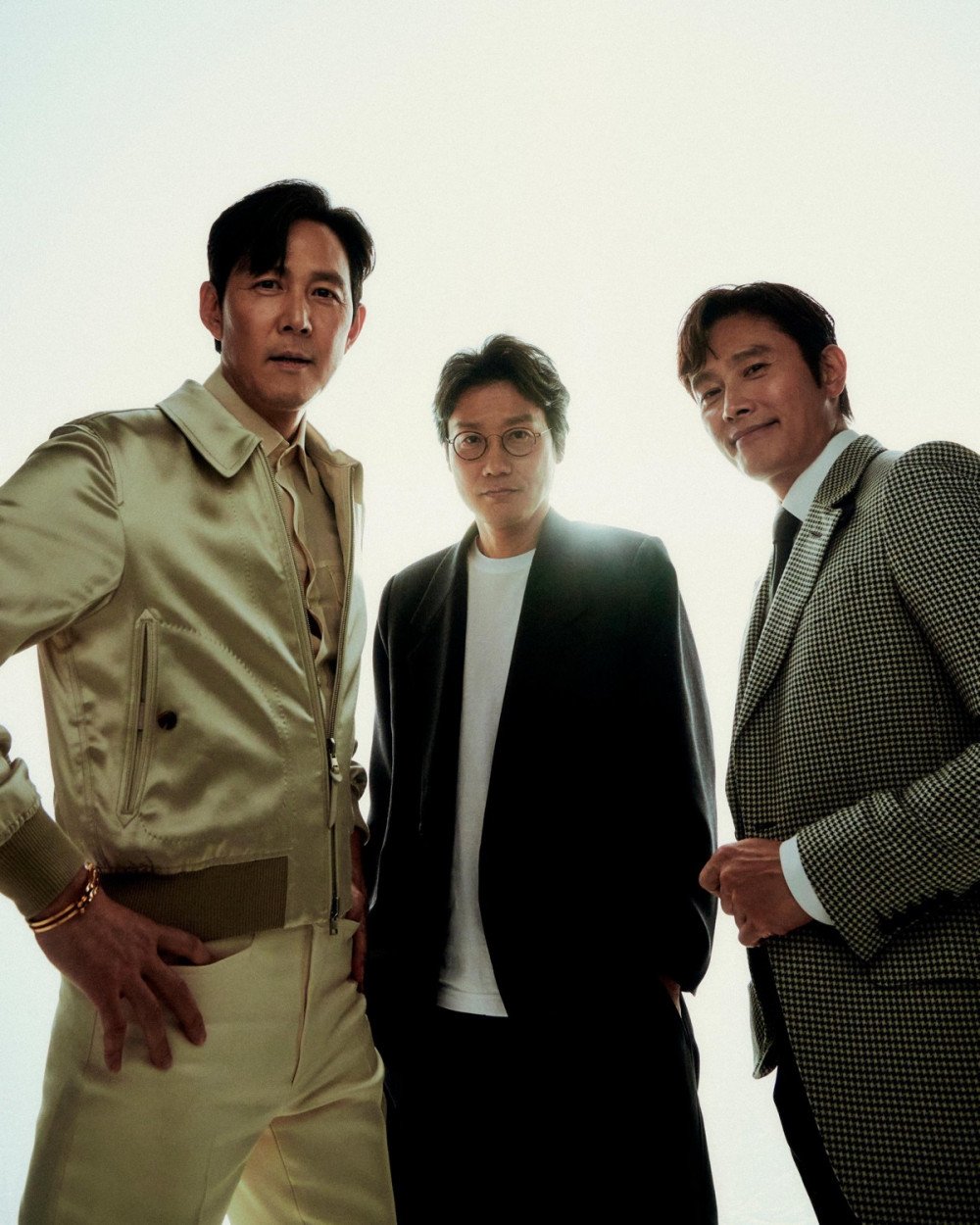
SEE ALSO: T.O.P drops a teaser video for his new album 'Top Spot - Another Dimension'
 SHARE
SHARE
